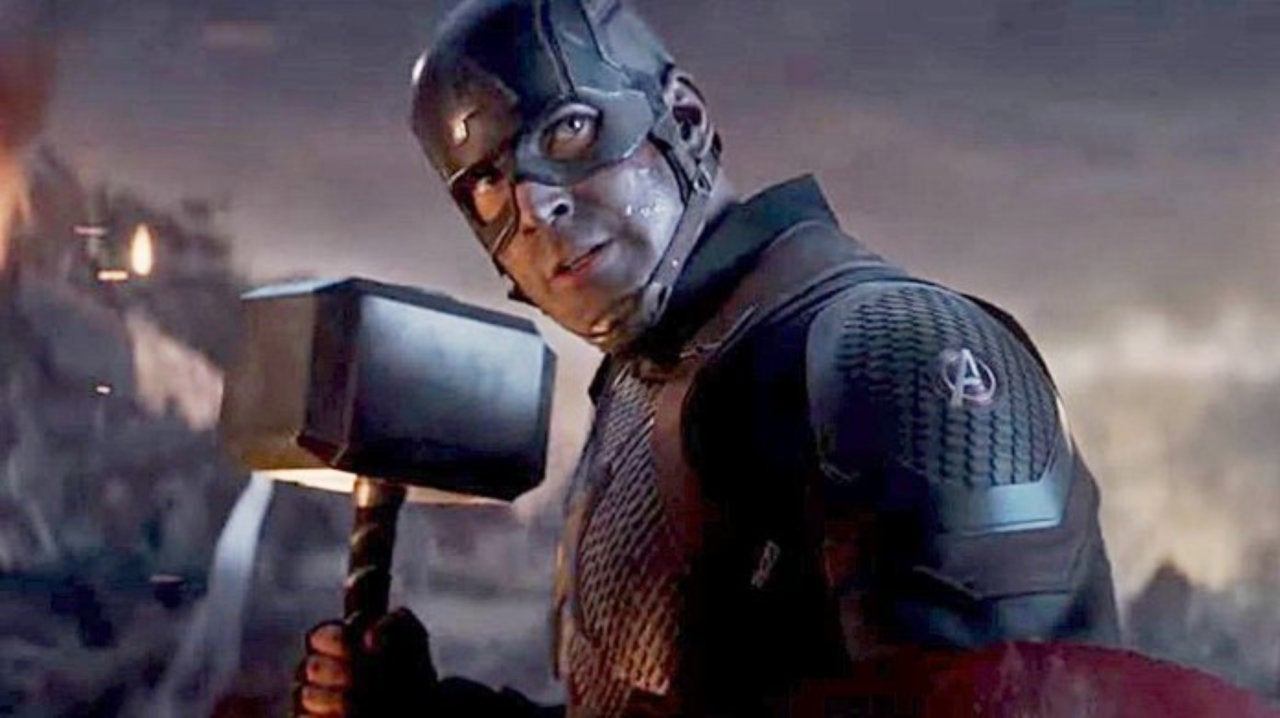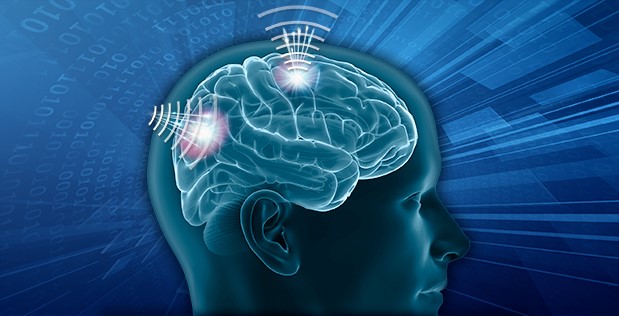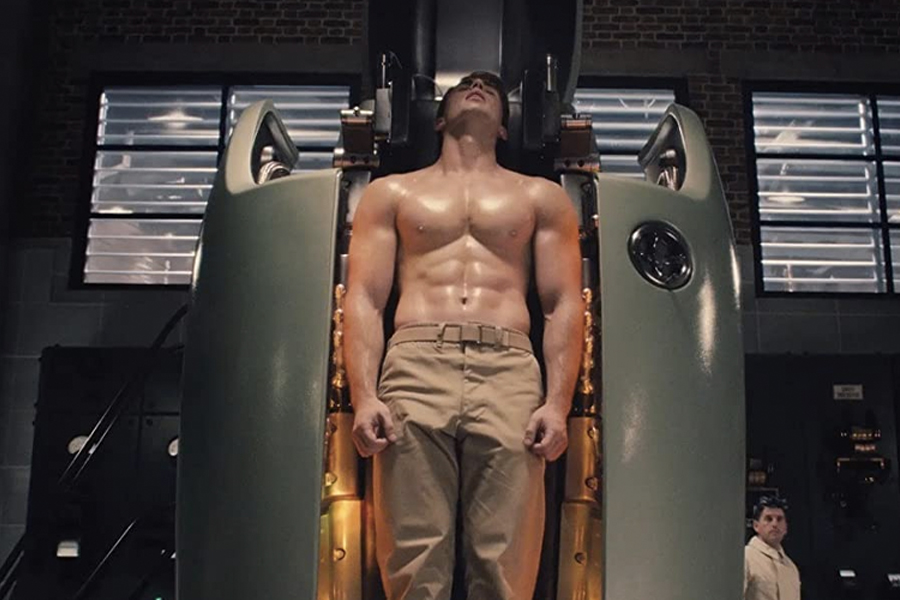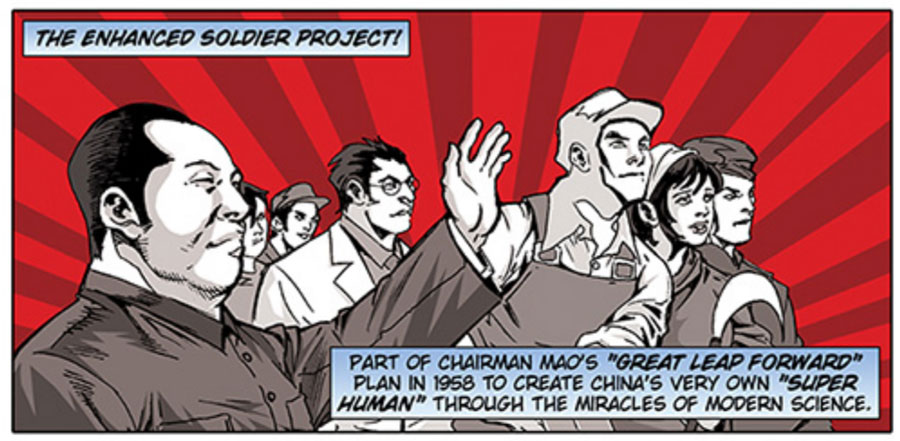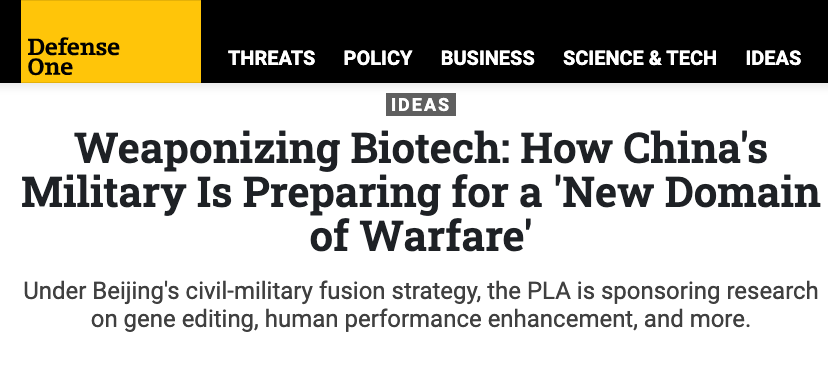| GENETIC ENGINEERING |
Original Post:7/10/16; Updated 6/8/19; UPDATED AND RESTORED 8/20/22
Published on Aug 18, 2018
https://youtu.be/34er8Pynm8M?list=PLmF9eSWlCspEFiItGUaTcuAM8-ByIPjza
spacer
Genetically Modified US Super Soldiers Reported Syria By UN Ambassador –
https://youtu.be/g2cuXtytFaI
Genetically modified humans have been the goal of the United States military since well before the 1940s. With the aid of our modern biotechnology companies, they are making tremendous headway in the development of their Super Soldier. “The Defense Advanced Research Projects Agency” (DARPA) has a $2 billion yearly budget for research to develop this super soldier. Experimenting with the human genome, DARPA hopes to manipulate certain gene expressions. As part of their experimentation, DARPA and the military industrial pharmaceutical complex are using mind-altering drugs as well as genetic engineering to enhance the soldiers’ natural abilities.
Some of the supernatural abilities DARPA plans to endow their Super Soldiers with are as follows:
1. regrow limbs destroyed in battle.
2. To feel no pain
3. eliminate empathy so as to enhance the ability to kill without remorse.
4. become fearless
5. fight for days in battle after battle without fatigue
6. live off fat stores and therefore go for days without food
7. see in the dark
8. display expert-level technical skills
9. highly accurate marksmanship
10. lift weights beyond those a trained bodybuilder could ever handle
11. communicate through telepathy
Oh, yes, the ability to leap tall buildings in a single bound!
Our military personnel are nothing more than slaves to the US Government, and their bodies and minds have been and are being used for all kinds of insane experimentation. Bless their hearts. As if war itself is not enough torture for them to suffer, they have been subjected to all manner of chemical exposure, drugs, vaccines, implants, injected with all manner of diseases and poisons. They have been traumatized and forced to perform unimaginably heinous acts. They have been deprived of sleep, water and nutrition and subjected to insanely bizarre physical, mental and emotional experimentation. It is a wonder any of them come home in one piece physically and even more of a wonder if they come emotionally and mentally stable. They have been deprived of their spiritual life support and forcibly exposed to satanic influence.
But, hey, don’t think you are going to get off scot-free, sitting back enjoying your television and video games. Who do you think all these developments the scientists are collecting all this data for are intended to be used on? Our military, prisoners, homeless, handicapped and unborn citizens have been guinea pigs, used for experimentation, so that the elite, who run the world, could learn everything they needed to know to control your every move and mold the world as they see fit. You will be ghastly surprised to learn what they have in store for you. It will make “1984”, the “Brave New World” and Hitler’s death camps look like a child’s play.
Genetically Modified Soldiers DARPA: The Mutant Wars

CENSORED ON YOUTBE
REPOSTED ON BITCHUTE
SEE BELOW:

To Watch This Video On BitChute Click the Title Link Below:
Genetically modified soldiers DARPA: The mutant wars
Metabolically Dominant Soldiers: The Real Captain America Project
Batman has always been an inspiration to gym goers because he represents the pinnacle of what we imagine to be possible in terms of human performance. He is ‘peak human’ and he got there through grit and determination.
If that’s what Batman represents, then Steve Rogers represents the next step. He is just beyond peak human. He is the soldier of tomorrow. His speed, strength, and stamina are greater than we can even imagine achieving – but it’s only really a bit of transhumanism that stands between him and us.
Or as Tony Stark puts it: “everything special about you came out of a bottle”.
But what makes this so interesting is that the concept really isn’t that far-fetched. In fact, this is something that DARPA and other organizations have been working on for a while: creating soldiers that are stronger, faster, smarter, and better than even the best human athletes.
And it’s not that far removed from what many of us are trying to accomplish with pre-workouts, nootropics, protein shakes – and in some cases – anabolic steroids. And there are some even more out-there biomods already available to regular folks too.

What can we learn from the performance enhancing strategies used by military scientists? How long until wars are fought by superhumans? In this article, I’ll be examining the possibility of creating real life super soldiers.
The Metabolically Dominant Soldier
The DARPA program that was concerned with the development of super soldiers was actually referred to as the ‘Metabolically Dominant Solider’ program or later, ‘Peak Soldier Performance’. Which sounds even more awesome.
A lot of this research revolved around the subject of powered exoskeletons and other types of equipment including fabrics with interwoven ‘nanomuscle fibers’, jump belts, and the Z-Man project looking at gecko inspired gloves for wall-crawling. I’ll come back to that in future, but for now we’re interested in human enhancements.
Biomods for Sleep and Learning
The project was launched in 2002 with the aim of reducing the susceptibility of troops to stress, sleep deprivation, fatigue, pain and blood loss, while also enhancing strength, speed, endurance, memory, and learning. DARPA has been known to investigate the use of nootropics like aniracetam and modafinil.

Among many other things, the project looked into a nasal spray called orexin A (AKA hypocretin), to help reduce the need for sleep.
Likewise, DARPA has a history of experimentation with transcranial direct current stimulation for enhanced learning and activating flow-states.
Endurance
Other projects include the use of cooling gloves used to regulate temperature and prevent fatigue from overheating (I’ll be looking in depth at thermal regulation soon), and drugs for enhancing strength and endurance. The latter project is sometimes referred to as ‘Energizer Bunny in Fatigues’. One strategy tested involved use of a drug that would allow the mitochondria to burn fats instead of carbohydrates (this is 516, which I’ll be returning to in a moment). A Dan Farber Cancer Institute pathologist, Lan Bo Chen, likewise found that blending a green tea extract with B vitamins could triple the endurance of lab rats by exponentially increasing their mitochondria production. Unfortunately, the same drink only managed to increase the performance of cyclists by 3%. That said, the drink is still being tested by the army nevertheless.
Labs Mixing Human DNA Animal DNA Trans-humanism Last days news
DARPA Creating the Ultimate Super Soldiers With Brain Implants
DARPA Creating Hybrid Super Soldiers Using Brain Implants
Published September 29, 2015 DARPA creating hybrid super soldiers.
DARPA is Hacking the Brain to Create Human Hybrid Cyborg Super Soldiers
In it’s never ending quest to gain superiority on the battlefield, DARPA has a new tool, the minds of human soldiers. DARPA is expanding beyond weapons and robotics into brain mapping for the use of artificial neural networks via implantation of electronic neural circuitry directly into human brain tissue.
Working with DARPA on this project, IBM built a cortical simulator on it’s super computer called DAWN at Laurence Livermoore Labs. DAWN consists of over 147,000 processors and 144 terabytes of RAM which managed to simulate 1.6 billion neurons and 8.87 trillion synapses or approximately the scale of a cat’s cortex.
This however, is NOT DARPA’s goal. Their goal as previously stated is to achieve self creating artificial neural networks using synthetic biology that will generate 10 billion neurons utilizing 100 trillion synapses….about 60% more than a Rhesus monkey and about 8.6% of that of a human.
Research Links:
https://en.wikipedia.org/wiki/List_of_animals_by_number_of_neurons
http://www.theguardian.com/science/blog/2012/feb/28/how-many-neurons-human-brain
http://www.artificialbrains.com/darpa-synapse-program
http://fusion.net/story/204316/darpa-is-implanting-chips-in-soldiers-brains/
More on this topic by L9N:
Executive Order: HPC and National Strategic Computing Initiativer [NSCI]
Real Life Super Soldier Program
Variant Comics
216,003 views
Mar 13, 2013 Today on Variant, we talk about DARPA. The Defense Advanced Research Projects Agency, and how their working on a real life Super Soldier Program! Which is straight out of Marvel’s Captain America comics. Plus, see what comics you should be buy this week!

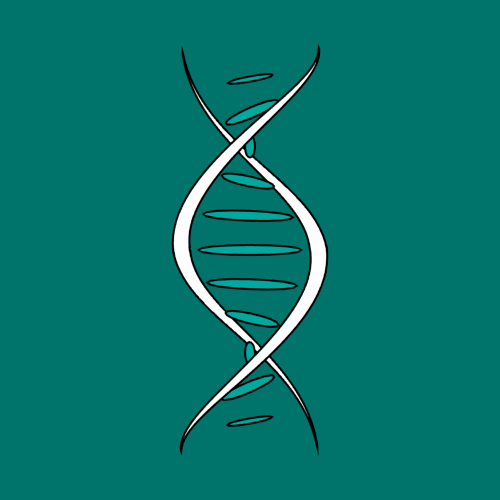
Joseph Stalin’s Humanzee Experiments
[FULL DOCUMENTARY]
Theory of DNA Science – MESSAGE FROM GOD
Rise of the Super Soldiers: A glimpse into the world of Genetic Enhancement?
The Illuminati Will Offer Humanity a “Next Step in Evolution”!
The Transhumanism Deception !!!
What is Trans Humanism? Could this be why YHVH (GOD) destroyed everything in a Worldwide Flood?
SCIENCE IS CREATING REAL SUPER SOLDIERS
spacer

The explosive popularity of the Marvel Cinematic Universe led some in the defense industry to pursue Iron Man-like combat suits for American troops. While there are some viable prototypes in the works, it looks like we may get Captain America’s “super soldier” program first.
Though it may not look like the process that Steve Rogers went through, it may be coming within the next 30 years.
In this week’s episode of “Left of Boom,” Military.com’s Managing Editor Hope Hodge Seck talks to Dr. Peter Emanuel and Dr. Diane DiEuliis about a 2019 paper they co-authored for the U.S. Army, Cyborg Soldier 2050.
The paper discusses a Defense Department Biotechnologies for Health and Human Performance Council (BHPC) study group that looked at emerging tech that could enhance human biological abilities across many areas of interest to the Defense Department. These included technological enhancements to vision, hearing, muscular control and “direct neural enhancement of the human brain for two-way data transfers.”
Now, super soldiers could end up being Captain America with a touch of Johnny Mnemonic — just 30 years from now.
Related: Super Soldiers Part 2: The Dark Side (Ft. Edward Barrett and Tony Pfaff)
“Technology is accelerating, and we are entering the fourth industrial revolution, this biological revolution,” Emanuel said. “To some extent, we’ve already seen the integration of man and machine over many years — in the use of pacemakers. To some extent, we’re already seeing mankind become more intimate with technology.”
Senior leadership at the Pentagon hates surprises, Emanuel noted, but they know that man and machine will be coming together. The study and the paper are designed to tell the DoD the kind of technology that may be coming and how it might integrate.
One of the ways the military works to solve problems is through the use of Blue teams and Red teams. The Blue team ensures they use technology as effectively as possible. The Red team is designed to think like the enemy. The DoD gave this Red team a year to show the Pentagon what the “cyborg future” might hold and help the top brass get ready for it. The paper is the outcome of that effort.
“What we wanted to do with this workshop was give it some ground truth, actually,” said DiEuliis. “What’s hype, what’s real, what can we expect, what are we potentially going to see in the real world, in the military, in this time frame.”
But they didn’t cover broad strokes of technology; they decided to focus on areas of most importance to actual warfighters and the willingness of those people to adopt certain technologies.
Listen to Part I of “The Future of Bioenhanced Super Soldiers on “Left of Boom,” wherever you listen to podcasts. You can tune in to new episodes of Military.com’s “Left of Boom” podcast on iTunes, Google Podcasts, Spotify, TuneIn and Stitcher. Follow Hope Hodge Seck on Twitter @HopeSeck.
— Blake Stilwell can be reached at blake.stilwell@military.com. He can also be found on Twitter @blakestilwell or on Facebook.
The Alberino Analysis – Super-Soldiers: The New Arms Race
https://www.youtube.com/watch?v=M77gdnPkM2k
Human/AI hybrids and gene editing are going to change mankind in a big way
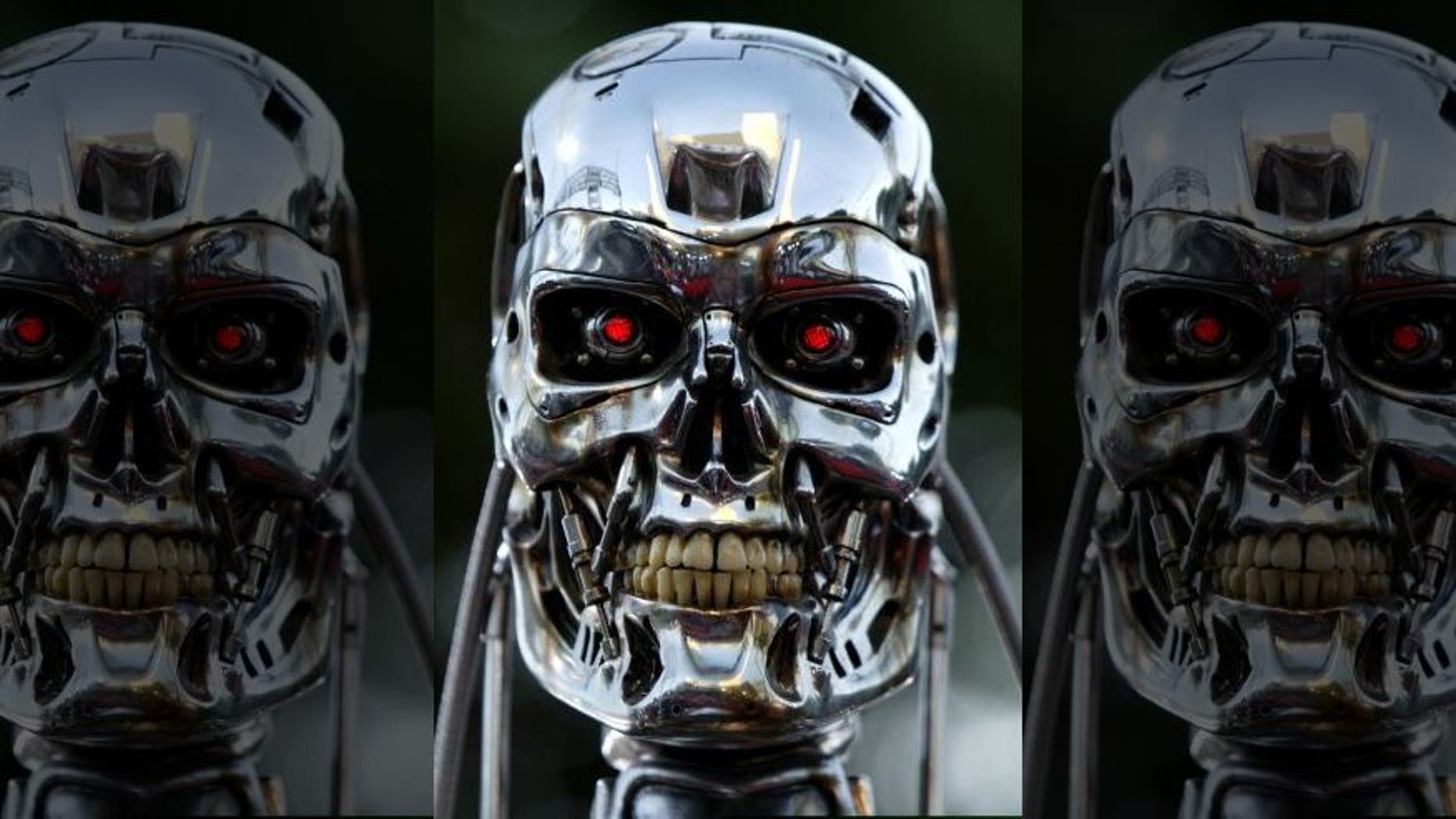
File photo – A robot from the movie is on display for the premiere of the motion picture Terminator 3 “Rise of the Machines” June 30, 2003, in west Los Angeles. (REUTERS/Mike Blake)
The human race has come a very long way in a short amount of time, but what is coming around the corner will change everything we thought we knew about mankind.
Modern medicine and rapidly advancing technology have seen us greatly evolve from the early days of hunter-gatherers, and now the same factors are working toward seeing the introduction of “superhumans” into our society.
At the core of the development is designer bodies using DNA manipulation and human/AI hybrids, both of which were highlighted during the World Government Summit in Dubai.
CHANGING YOUR DNA
Imagine being able to choose if your unborn child will be male or female, their height, weight and even athletic prowess.
Now imagine hacking our memories or making our bodies able to thrive in extreme environments in which survival was previously impossible.
These are both quickly becoming a reality, according to founding director of the Life Sciences Project at Harvard Business School, Juan Enriquez.
Allowing humans to become masters of their DNA is something that can be achieved using a gene editing technique known as CRISPR — a simple yet powerful tool used to easily alter DNA sequences and modify gene function.
“These instruments, like CRISPR, are allowing us to, in real-time, edit life on a grand scale,” Enriquez said, according to Futurism. “We are rewriting the sentences of life to our purposes.”
He said these techniques will soon see us living in a world of “unrandom selection.”
“Instead of letting nature select what lives here, I’m going to select what lives here,” he said. “Science used to be about discovery, now it is about creation.”
The academic said more than being able to create athletes from birth, the technology would greatly increase the amount of lives that could be saved on a daily basis.
“You can make the world’s flu vaccine in a week instead of a year. And by the way, this is no longer theoretical,” Enriquez said.
With the likes of Elon Musk and NASA working toward getting humans to colonize Mars, he said gene editing will play a vital role in this.
“Why would anyone want to do this,” Enriquez asked. “Because, at heart, we are explorers. We have to take control of our own evolution if we want to even think about getting somewhere else.”
HUMAN/AI HYBRIDS
Editing our genomes to thrive in extreme environments will be useless if we can’t figure out a way for humans and artificial intelligence to merge.
At least this is the belief of renowned futurist Ian Pearson, who said something needs to be done before Artificial Intelligence becomes “billions of times” smarter than mankind.
“The fact is that AI can go further than humans, it could be billions of times smarter than humans at this point,” he said.
“So we really do need to make sure that we have some means of keeping up. The way to protect against that is to link that AI to your brain so you have the same IQ … as the computer.”
At the same World Government Summit the year prior, Elon Musk also suggested humans and AI need to merge.
“Over time, I think we will probably see a closer merger of biological intelligence and digital intelligence,” Musk said in February 2017.
“It’s mostly about the bandwidth, the speed of the connection between your brain and the digital version of yourself, particularly output.”
Since the comments, Musk has even founded a company called Neuralink, which has been designed to make this a reality.
During his speech, Pearson said he agreed with Musk’s comments and commended the work being done by Neuralink.
“I don’t actually think it’s safe, just like Elon Musk … to develop these superhuman computers until we have a direct link to the human brain,” he said.
SUPERHUMAN WORKERS
Whether it is self-driving taxis or service and hospitality robots, one of the biggest concerns of AI is the risk it will pose to the human workforce.
But the co-founder of Google’s secretive X laboratory believes there is nothing to worry about.
During his address at the summit, Sebastian Thurn said he envisioned a future where humans and AI would merge, turning people into “superhuman workers”.
“AI is a tool and what AI can do really, really well is getting rid of repetitive work,” he said, reported CNBC.
“So, if you are a worker, say a medical doctor or a lawyer who spends day in and day out doing the same thing, then having AI look over your shoulder and learn those skills from you will make you a superhuman, a more powerful person.
“Now, that means that some jobs will go away, very repetitive work, of course. But it will be replaced by created work, so we have to move from a repetitive working society into a creative society where we invent new things.”
This story originally appeared in news.com.au.

To Watch This Video On BitChute Click the Title Link Below:
MILITARY SUPER SOLDIERS NEUROSCIENCE UCSF
Mind Hack, Jeff DeRiso looks into cognitive enhancement technology and its application for military special forces. He also investigates the controversial subject of electromagnetic microwave weapons, which can covertly effect the human nervous system, leaving no trace. We also discuss the story of a device that translates human speech into ultrasound, allowing communication with dolphins. Finally, how are digital content creators setting the tone for the mental health of future generations?
2 years, 11 months ago
Visit the following link for more: CRISPER Series
Continued in Part 8 Who Wants Super Powers?

 Super Soldiers Conspiracy!?!?!?!
Super Soldiers Conspiracy!?!?!?!